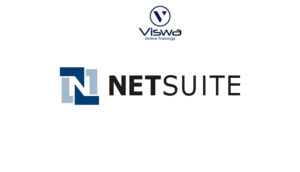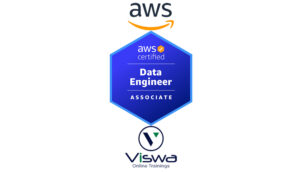Artificial Intelligence Certification Training
One of the top providers of online IT training worldwide is VISWA Online Trainings. To assist beginners and working professionals in achieving their career objectives and taking advantage of our best services, We provide a wide range of courses and online training.
Learners : 1080
Duration: 3 Months
About Course
Artificial intelligence is the capacity of a digitally controlled robot to carry out functions often performed by intelligent beings. As another example of AI,
- Humans Created Intelligent Entities
- capable of acting intelligently without being specifically told what to do.
- capable of logical thought and humane behavior.
Artificial Intelligence Training Course Syllabus
✔ Limitations of Machine Learning
✔ Need for Data Scientists
✔ Foundation of Data Science
✔ What is Business Intelligence
✔ What is Data Analysis
✔ What is Data Mining
✔ Value Chain
✔ Types of Analytics
✔ Lifecycle Probability
✔ Analytics Project Lifecycle
✔ Advantages of Deep Learning over Machine learning
✔ Reasons for Deep Learning
✔ Real-Life use cases of Deep Learning
✔ Review of Machine Learning
✔ Basis of Data Categorization
✔ Types of Data
✔ Data Collection Types
✔ Forms of Data & Sources
✔ Data Quality & Changes
✔ Data Quality Issues
✔ Data Quality Story
✔ What is Data Architecture
✔ Components of Data Architecture
OLTP vs OLAP
How is Data Stored?
✔ What is Big Data?
✔ 5 Vs of Big Data
✔ Big Data Architecture
✔ Big Data Technologies
✔ Big Data Challenge
✔ Big Data Requirements
✔ Big Data Distributed Computing & Complexity
✔ Hadoop
✔ Map-Reduce Framework
✔ Hadoop Ecosystem
✔ What Data Science is
✔ Why Data Scientists are in demand
✔ What is a Data Product
✔ The growing need for Data Science
✔ Large Scale Analysis Cost vs Storage
✔ Data Science Skills
✔ Data Science Use Cases
✔ Data Science Project Life Cycle & Stages
✔ Data Acquisition
✔ Where to source data
✔ Techniques
✔ Evaluating input data
✔ Data formats
✔ Data Quantity
✔ Data Quality
✔ Resolution Techniques
✔ Data Transformation
✔ File format Conversions
✔ Anonymization
✔ Python Overview
✔ About Interpreted Languages
✔ Advantages/Disadvantages of Python pydoc.
✔ Starting Python
✔ Interpreter PATH
✔ Using the Interpreter
✔ Running a Python Script
✔ Using Variables
✔ Keywords
✔ Built-in Functions
✔ StringsDifferent Literals
✔ Math Operators and Expressions
✔ Writing to the Screen
✔ String Formatting
✔ Command Line Parameters and Flow Control.
✔ Lists
✔ Tuples
✔ Indexing and Slicing
✔ Iterating through a Sequence
✔ Functions for all Sequences
✔ Range() function
✔ List Comprehensions
✔ Generator Expressions
✔ Dictionaries and Sets.
✔ Learning NumPy
✔ Introduction to Pandas
✔ Creating Data Frames
✔ GroupingSorting
✔ Plotting Data
✔ Creating Functions
✔ Slicing/Dicing Operations.
✔ Functions
✔ Function Parameters
✔ Global Variables
✔ Variable Scope and Returning Values. Sorting
✔ Alternate Keys
✔ Lambda Functions
✔ Sorting Collections of Collections
✔ Classes & OOPs
✔ What is Statistics
✔ Descriptive Statistics
✔ Central Tendency Measures
✔ The Story of Average
✔ Dispersion Measures
✔ Data Distributions
✔ Central Limit Theorem
✔ What is Sampling
✔ Why Sampling
✔ Sampling Methods
✔ Inferential Statistics
✔ What is Hypothesis testing
✔ Confidence Level
✔ Degrees of freedom
✔ What is pValue
✔ Chi-Square test
✔ What is ANOVA
✔ Correlation vs Regression
✔ Uses of Correlation & Regression
✔ Introduction
✔ ML Fundamentals
✔ ML Common Use Cases
✔ Understanding Supervised and Unsupervised Learning Techniques
✔ Similarity Metrics
✔ Distance Measure Types: Euclidean, Cosine Measures
✔ Creating predictive models
✔ Understanding K-Means Clustering
✔ Understanding TF-IDF, Cosine Similarity and their application to Vector Space Model
✔ Case study
✔ What is Association Rules & its use cases?
✔ What is the Recommendation Engine & it’s working?
✔ Recommendation Use-case
✔ Case study
✔ How to build Decision trees
✔ What is Classification and its use cases?
✔ What is Decision Tree?
✔ Algorithm for Decision Tree Induction
✔ Creating a Decision Tree
✔ Confusion Matrix
✔ Case study
✔ What is Random Forests
✔ Features of Random Forest
✔ Out of Box Error Estimate and Variable Importance
✔ Case study
✔ Case Study
✔ Various approaches to solving a Data Science Problem
✔ Pros and Cons of different approaches and algorithms.
✔ Case study
✔ Introduction to Predictive Modeling
✔ Linear Regression Overview
✔ Simple Linear Regression
✔ Multiple Linear Regression
✔ Case study
✔ Logistic Regression Overview
✔ Data Partitioning
✔ Univariate Analysis
✔ Bivariate Analysis
✔ Multicollinearity Analysis
✔ Model Building
✔ Model Validation
✔ Model Performance Assessment AUC & ROC curves
✔ Scorecard
✔ Case Study
✔ Introduction to SVMs
✔ SVM History
✔ Vectors Overview
✔ Decision Surfaces
✔ Linear SVMs
✔ The Kernel Trick
✔ Non-Linear SVMs
✔ The Kernel SVM
✔ Describe Time Series data
✔ Format your Time Series data
✔ List the different components of Time Series data
✔ Discuss different kind of Time Series scenarios
✔ Choose the model according to the Time series scenario
✔ Implement the model for forecasting
✔ Explain working and implementation of ARIMA model
✔ Illustrate the working and implementation of different ETS models
✔ Forecast the data using the respective model
✔ What is Time Series data?
✔ Time Series variables
✔ Different components of Time Series data
✔ Visualize the data to identify Time Series Components
✔ Implement ARIMA model for forecasting
✔ Exponential smoothing models
✔ Identifying different time series scenarios based on which different Exponential
✔ The smoothing model can be applied
✔ Implement respective model for forecasting
✔ Visualizing and formatting Time Series data
✔ Plotting decomposed Time Series data plot
✔ Applying ARIMA and ETS model for Time Series forecasting
✔ Forecasting for given Time period
✔ Case Study
✔ Various machine learning algorithms in Python
✔ Apply machine learning algorithms in Python
✔ How to select the right data
✔ Which are the best features to use
✔ Additional feature selection techniques
✔ A feature selection case study
✔ Preprocessing
✔ Preprocessing Scaling Techniques
✔ How to preprocess your data
✔ How to scale your data
✔ Feature Scaling Final Project
✔ Highly efficient machine learning algorithms
✔ Bagging Decision Trees
✔ The power of ensembles
✔ Random Forest Ensemble technique
✔ Boosting – Adaboost
✔ Boosting ensemble stochastic gradient boosting
✔ A final ensemble technique
✔ Introduction Model Tuning
✔ Parameter Tuning GridSearchCV
✔ A second method to tune your algorithm
✔ How to automate machine learning
✔ Which ML algo should you choose
✔ How to compare machine learning algorithms in practice
✔ Sentimental Analysis
✔ Case study
✔ Introduction to Spark Core
✔ Spark Architecture
✔ Working with RDDs
✔ Introduction to PySpark
✔ Machine learning with PySpark – Mllib
✔ Deep Learning & AI
✔ Case Study
✔ Deep Learning Overview
✔ The Brain vs Neuron
✔ Introduction to Deep Learning
✔ The Detailed ANN
✔ The Activation Functions
✔ How do ANNs work & learn
✔ Gradient Descent
✔ Stochastic Gradient Descent
✔ Backpropagation
✔ Understand the limitations of a Single Perceptron
✔ Understand Neural Networks in Detail
✔ Illustrate Multi-Layer Perceptron
✔ Backpropagation – Learning Algorithm
✔ Understand Backpropagation – Using Neural Network Example
✔ MLP Digit-Classifier using TensorFlow
✔ Building a multi-layered perceptron for classification
✔ Why Deep Networks
✔ Why Deep Networks give better accuracy?
✔ Use-Case Implementation
✔ Understand How Deep Network Works?
✔ How Backpropagation Works?
✔ Illustrate Forward pass, Backward pass
✔ Different variants of Gradient Descent
✔ Convolutional Operation
✔ Relu Layers
✔ What is Pooling vs Flattening
✔ Full Connection
✔ Softmax vs Cross Entropy
✔ ” Building a real world convolutional neural network
for image classification”
✔ Recurrent neural networks rnn
✔ LSTMs understanding LSTMs
✔ long short term memory neural networks lstm in python
✔ Restricted Boltzmann Machine
✔ Applications of RBM
✔ Introduction to Autoencoders
✔ Autoencoders applications
✔ Understanding Autoencoders
✔ Building an Autoencoder model
✔ Introducing Tensorflow
✔ Introducing Tensorflow
✔ Why Tensorflow?
✔ What is TensorFlow?
✔ Tensorflow as an Interface
✔ Tensorflow as an environment
✔ Tensors
✔ Computation Graph
✔ Installing Tensorflow
✔ Tensorflow training
✔ Prepare Data
✔ Tensor types
✔ Loss and Optimization
✔ Running TensorFlow programs
✔ Tensorflow
✔ Tensors
✔ Tensorflow data types
✔ CPU vs GPU vs TPU
✔ Tensorflow methods
✔ Introduction to Neural Networks
✔ Neural Network Architecture
✔ Linear Regression example revisited
✔ The Neuron
✔ Neural Network Layers
✔ The MNIST Dataset
✔ Coding MNIST NN
✔ Deepening the network
✔ Images and Pixels
✔ How humans recognise images
✔ Convolutional Neural Networks
✔ ConvNet Architecture
✔ Overfitting and Regularization
✔ Max Pooling and ReLU activations
✔ Dropout
✔ Strides and Zero Padding
✔ Coding Deep ConvNets demo
✔ Debugging Neural Networks
✔ Visualizing NN using Tensorflow
✔ Tensorboard
✔ Keras and TFLearn
✔ Transfer Learning Introduction
✔ Google Inception Model
✔ Retraining Google Inception with our own data demo
✔ Predicting new images
✔ Transfer Learning Summary
✔ Extending Tensorflow
✔ Keras
✔ TFLearn
✔ Keras vs TFLearn Comparison
| Live Instructor Based Training With Software |
| Lifetime access and 24×7 support |
| Certification Oriented content |
| Hands-On complete Real-time training |
| Get a certificate on course completion |
| Flexible Schedules |
| Live Recorded Videos Access |
| Study Material Provided |
Artificial Intelligence Training - Upcoming Batches
7th NOV 2022
8 AM IST
Coming Soon
AM IST
5th NOV 2022
8 AM IST
Coming Soon
AM IST
Don't find suitable time ?
CHOOSE YOUR OWN COMFORTABLE LEARNING EXPERIENCE
Live Virtual Training
-
Schedule your sessions at your comfortable timings.
-
Instructor-led training, Real-time projects
-
Certification Guidance.
Self-Paced Learning
-
Complete set of live-online training sessions recorded videos.
-
Learn technology at your own pace.
-
Get access for lifetime.
Corporate Training
-
Learn As A Full Day Schedule With Discussions, Exercises,
-
Practical Use Cases
-
Design Your Own Syllabus Based
Artificial Intelligence Training FAQ'S
Artificial intelligence is a branch of computer science that focuses on building smart machines that can replicate human behaviour. In this context, intelligent robots are characterised as being able to think and act like humans and to make decisions. Its two components, “Artificial” and “Intelligence,” are words that together denote “man-made thinking ability.”
The goal of Artificial intelligence is to create intelligent machines that can mimic human behavior. We need AI for today’s world to solve complex problems and make our lives more smoothly by automating routine work, saving manpower, and performing many other tasks.
Artificial intelligence can be divided into different types on the basis of capabilities and functionalities.
Based on Capabilities:
Weak AI or Narrow AI: Weak AI is capable of performing some dedicated tasks with intelligence. Siri is an example of a Weak AI.
General AI: The intelligent machines that can perform any intellectual task with efficiency as a human.
Strong AI: It is the hypothetical concept that involves a machine that will be better than humans and will surpass human intelligence.
Based on Functionalities:
Reactive Machines: Purely reactive machines are the basic types of AI. These focus on the present actions and cannot store the previous actions. Example: Deep Blue.
Limited Memory: As its name suggests, it can store past data or experiences for a limited duration. The self-driving car is an example of such AI type.
Theory of Mind: It is the advanced AI that is capable of understanding human emotions, people, etc., in the real world.
Self-Awareness: Self Awareness AI is the future of Artificial Intelligence that will have its own consciousness, and emotions, similar to humans.
Get ahead in your career by learning Artificial Intelligence through VISWA Online Trainings
AI covers lots of domains or subsets, and some main domains are given below:
- Machine Learning
- Deep Learning
- Neural Network
- Expert System
- Fuzzy Logic
- Natural Language Processing
- Robotics
- Speech Recognition
Q-learning is a popular algorithm used in reinforcement learning. It is based on the Bellman equation. In this algorithm, the agent tries to learn the policies that can provide the best actions to perform for maximising the rewards under particular circumstances. The agent learns these optimal policies from past experiences.
In Q-learning, the Q is used to represent the quality of the actions at each state, and the goal of the agent is to maximize the value of Q.
Reviews
 Lavanya Posina2024-09-30To get the SAP S4HANA MM training is really worth from VISWA Technologies. I would like to thank you for providing an excellent training.
Lavanya Posina2024-09-30To get the SAP S4HANA MM training is really worth from VISWA Technologies. I would like to thank you for providing an excellent training. Krishna Grandhi2024-09-19I attended PBCS course. Trainer has good knowledge and his explanation is easy to understand. The support team is also supportive during the training period. Overall experience is good.
Krishna Grandhi2024-09-19I attended PBCS course. Trainer has good knowledge and his explanation is easy to understand. The support team is also supportive during the training period. Overall experience is good. Siddhartha Mothukuri2024-09-10Learnt SAP EWM and it has been a really good experience with VISWA Online Trainings and trainer has been excellent in terms of his understanding in business as well as SAP. Thank you
Siddhartha Mothukuri2024-09-10Learnt SAP EWM and it has been a really good experience with VISWA Online Trainings and trainer has been excellent in terms of his understanding in business as well as SAP. Thank you Lakshmiprasanna Annem2024-08-01Thanks chaitanya arrange for sap bw on Hana job support. I will recommend definitely anyone.
Lakshmiprasanna Annem2024-08-01Thanks chaitanya arrange for sap bw on Hana job support. I will recommend definitely anyone. VINOD reddy2024-07-23Amazing Oracle Transportation Management (OTM) training! Definitely recommend.
VINOD reddy2024-07-23Amazing Oracle Transportation Management (OTM) training! Definitely recommend. Arvind P2024-06-28Good institute. Very responsible. As a trainer I got a good experience with them
Arvind P2024-06-28Good institute. Very responsible. As a trainer I got a good experience with them srinivasulu p2024-05-14I have recently enrolled azure cloud security training. There was lots of interaction sessions. It was best online learning platform.
srinivasulu p2024-05-14I have recently enrolled azure cloud security training. There was lots of interaction sessions. It was best online learning platform. Mahendra Reddy2024-05-14I would definitely recommend it anyone looking for generative AI course. This is friendly course thanks phani kumar
Mahendra Reddy2024-05-14I would definitely recommend it anyone looking for generative AI course. This is friendly course thanks phani kumar




